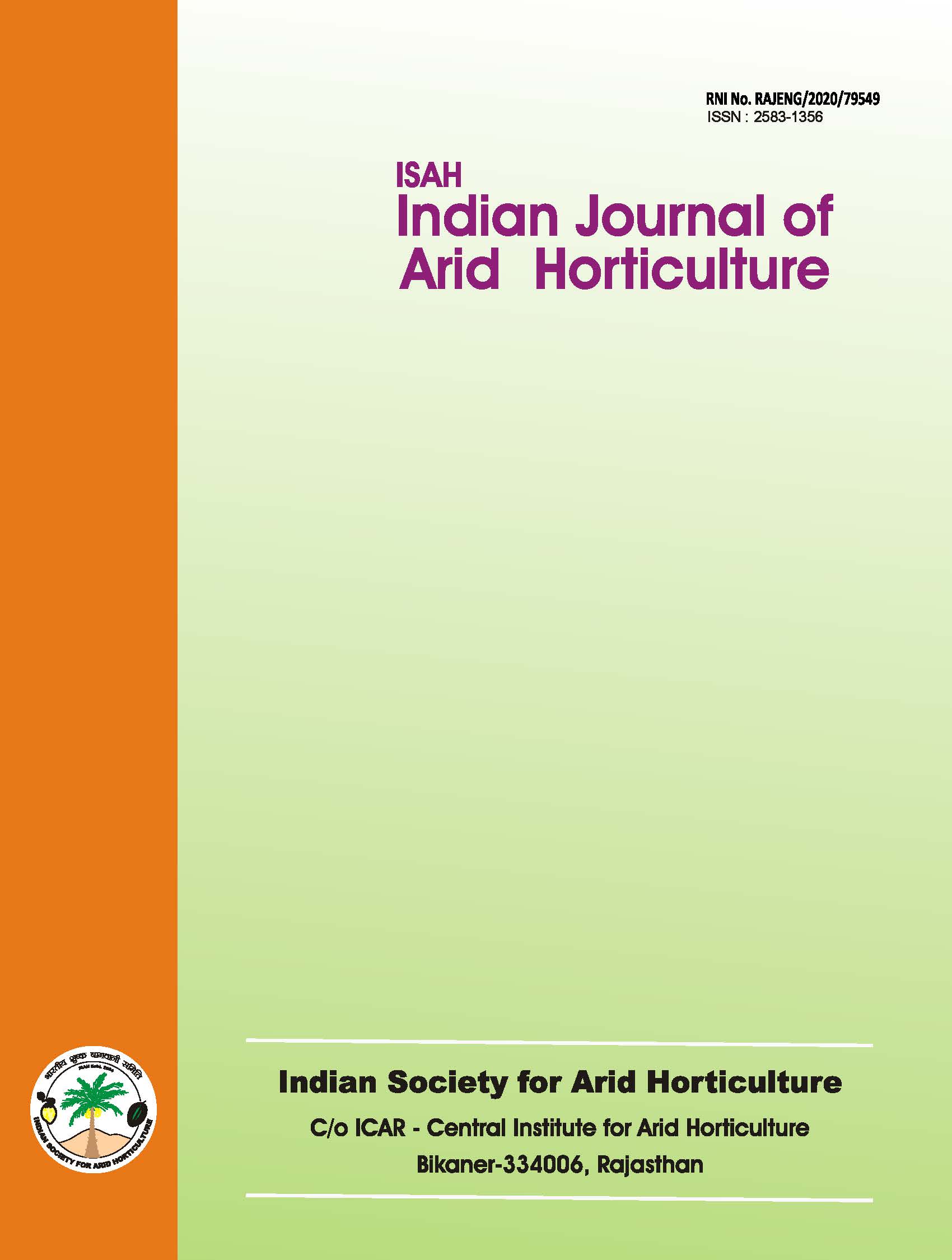Conservation and management of plant genetic resources of arid fruits : A review
Keywords:
Arid fruits, germplasm conservation, genetic diversity, arid regionAbstract
Arid climate is characterized by harsh environmental conditions such as low rainfall, high evapo-transpiration and high temperature. The arid zone soils are very poor in fertility, organic matter and water holding capacity. The soils of the north-western arid region described as 'desert soils' and order of Aridisols are light in texture. The ground water resource is not only limited but is also of saline quality. The average annual rainfall is very low and varies from 100 mm in north- western sector of Jaisalmer to 450 mm in the eastern boundary or arid zone of Rajasthan. The rich genetic diversity is available in arid fruit crops such as ber (Ziziphus mauritiana); boradi (Ziziphus rotundifolia), Lasoda (Cordia myxa), Ker (Capparis decidua), Phalsa (Grewia subinaequalis), Pomegranate (Punica granatum), Date palm (Phoenix dactylifera),Bael (Aegle marmelos), Pilu (Salvadora spp. ), Karonda (Carissa carandus ), Fig (Ficus carica), Wood apple (Feronia limonia), Mulberry (Morus spp.), Manila tamarind (Pithocelobium dulce), etc. and it should be conserved for crop improvement programme. Due to hardy plant types, these fruit plants can thrive well under drought situations, which is common feature in arid region. The fruit crops which have the potential for commercial exploitation are yet to be exploited to their potential for providing food and livelihood security in semi arid and arid parts of the country. These fruit plant species produce edible nutritious fruits and other products of economic importance. In this paper, the genetic variability, conservation and utilization in arid fruits have been discussed for genetic improvement and sustainable production in arid region.

